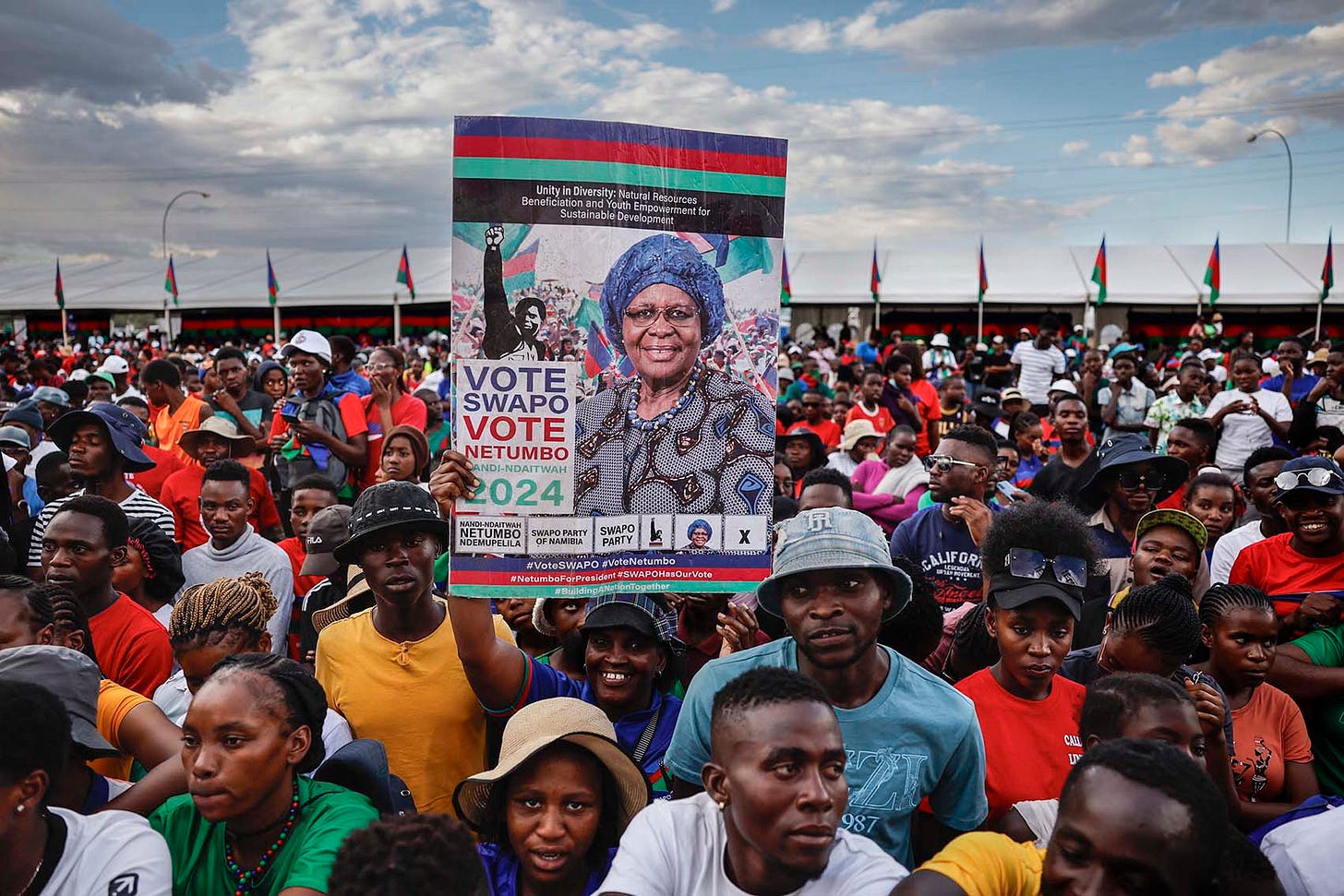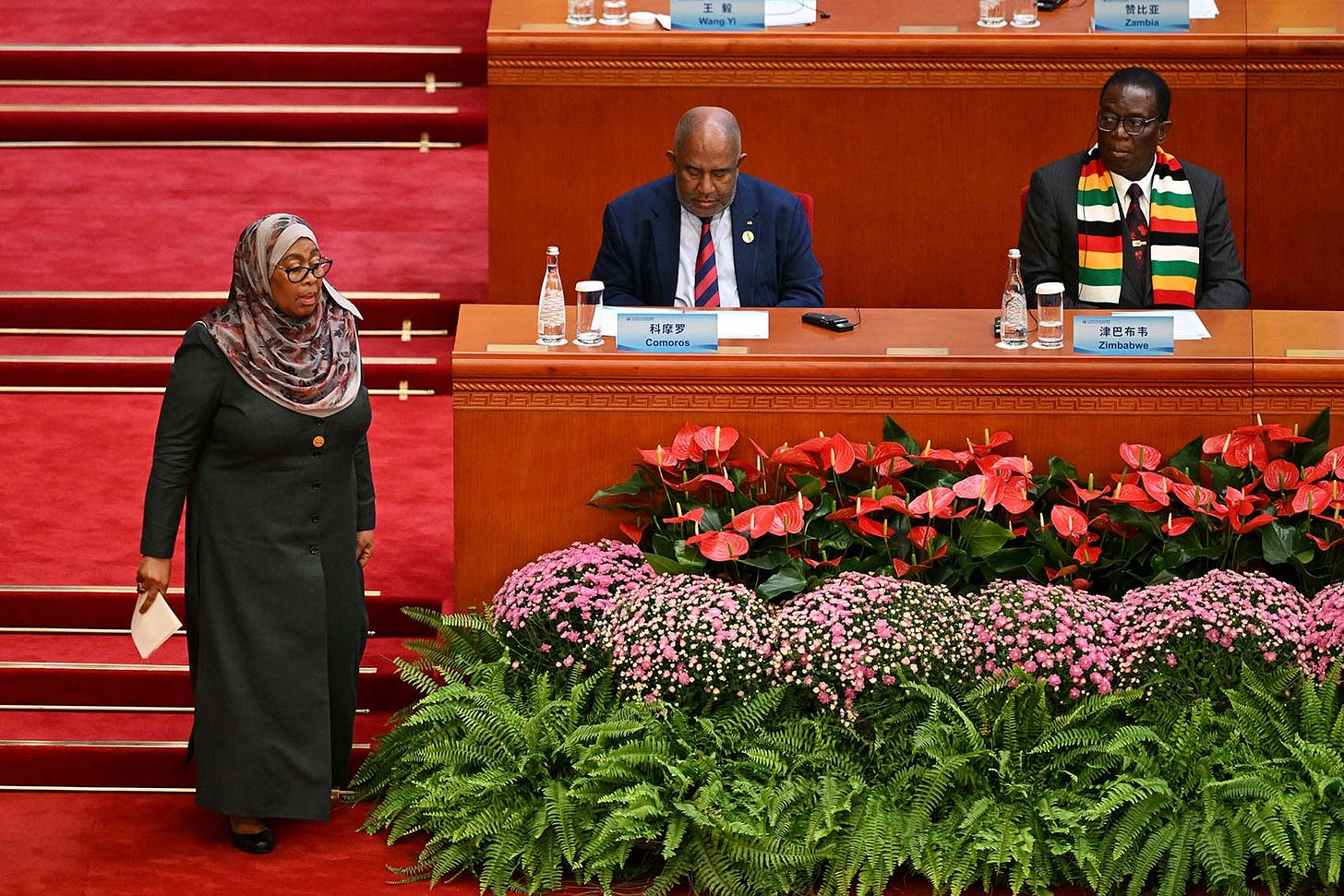Feminist or figurehead?
Of 54 countries in Africa, just two are led by women. Is it reasonable to expect them to champion feminist reforms?
Kevin D. Mofokeng

The ascent of women like Tanzania’s Samia Suluhu Hassan and Namibia’s Netumbo Nandi-Ndaitwah to the highest political offices in Africa is often hailed as a victory for feminism and gender equality.
When they fail to radically transform entrenched patriarchal systems, public disappointment is swift and sharp. In power, women can either be celebrated as feminist icons or denigrated as disappointing hollow figureheads – rarely anything in between.
But what if the problem isn’t them?
To demand that a woman’s leadership be inherently transformative is to hold her to a gendered standard. It is not only unrealistic but fundamentally unfair in systems that remain dominated by masculine norms, militarised politics, and elite gatekeeping.
We do not expect male presidents to embody the hopes of all men, nor do we burden them with the task of dismantling systems that brought them to power. Why do we do this to women?
Take President Suluhu. When she succeeded the late John Magufuli in 2021, many hoped for a new dawn in Tanzanian politics, one of transparency, rights-respecting governance, and feminist reform.
Initially, she lifted bans on opposition rallies and media outlets, signalling a potential shift towards openness. However, these reforms were shortlived. The arrest of opposition leader Freeman Mbowe on terrorism charges in 2021, followed by his subsequent releases and re-arrests, showed that repressive tactics would continue under her administration.
Further tainting the reformist image thrust upon her, in 2024 opposition official Ali Kibao was abducted and murdered. Last month, two activists from Kenya and Uganda were arrested, held incommunicado for days and would later emerge alleging that they were horribly tortured in detention.
Local media has reported that dozens of opposition supporters have been kidnapped, assaulted or detained in recent months.
When Nandi-Ndaitwah became Namibia’s first female president, it spurred talk of broken gender barriers. Yet, as analysts noted, her rise was, in part, conditioned by her conservative stance on feminist issues like reproductive rights and LGBTQIA+ rights. Many point out she has avoided progressive gender politics altogether, aligning with the patriarchal core of her party, Swapo, to stay in favour.
Meanwhile, the speaker of Uganda’s parliament, Anita Among, has actively advanced anti-feminist laws, including anti-LGBTQIA+ legislation.
Wider research suggests that increasing the number of women in leadership does not automatically translate into feminist governance.
Rwanda is a textbook case: it leads the world in gender parity in parliament, but, as real power lies in the executive, this has not made it a feminist country. The only women to aspire to the presidency – Diane Rwigara and Victoire Ingabire – have already spent time in prison on spurious charges. This week, Ingabire received court summons for what she expects to be treason charges.
A 2023 IMF examination of how digital platforms have impacted people’s perception of women leaders in 34 African countries found that they increased the visibility of female leaders in Sub-Saharan Africa but that did not necessarily translate into real influence.
Sellout or political survivors?
Are the women who get power in Africa’s existing political structures – and fail or refuse to disrupt them – sellouts or political survivors?
As Ugandan scholar Sylvia Tamale argues, African political institutions remain structurally patriarchal, even when women are present. Being the “first woman” in the room does not dismantle the rules of the room; it often means learning to survive within them.

Women can’t challenge dominant ideologies without risking political annihilation. Political structures reward conformity over conviction. We must stop expecting every woman leader to be a reformer, a radical, or a revolutionary. Sometimes, she is simply surviving. And that, in a system designed to exclude her, is already political.
We also cannot assume that every woman in power is a feminist by default.
Genuine feminist transformation requires women’s influence across the political ecosystem, not just at the top. A system that doesn’t antagonise feminist reform would require women leading legislative committees, local councils, and party structures where norms are negotiated and power is contested daily.
When a few women win power, they become symbols of progress. But symbols don’t govern. Systems do.




Thank you for thoughtful, concise insight; with good advice in conclusion - to work at community, neighbourhood, local systems to effect change.
the answer is figurehead every time. the establishments that consolidate power are still afraid of labels